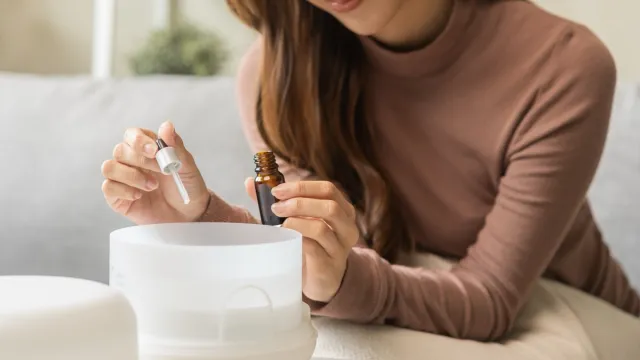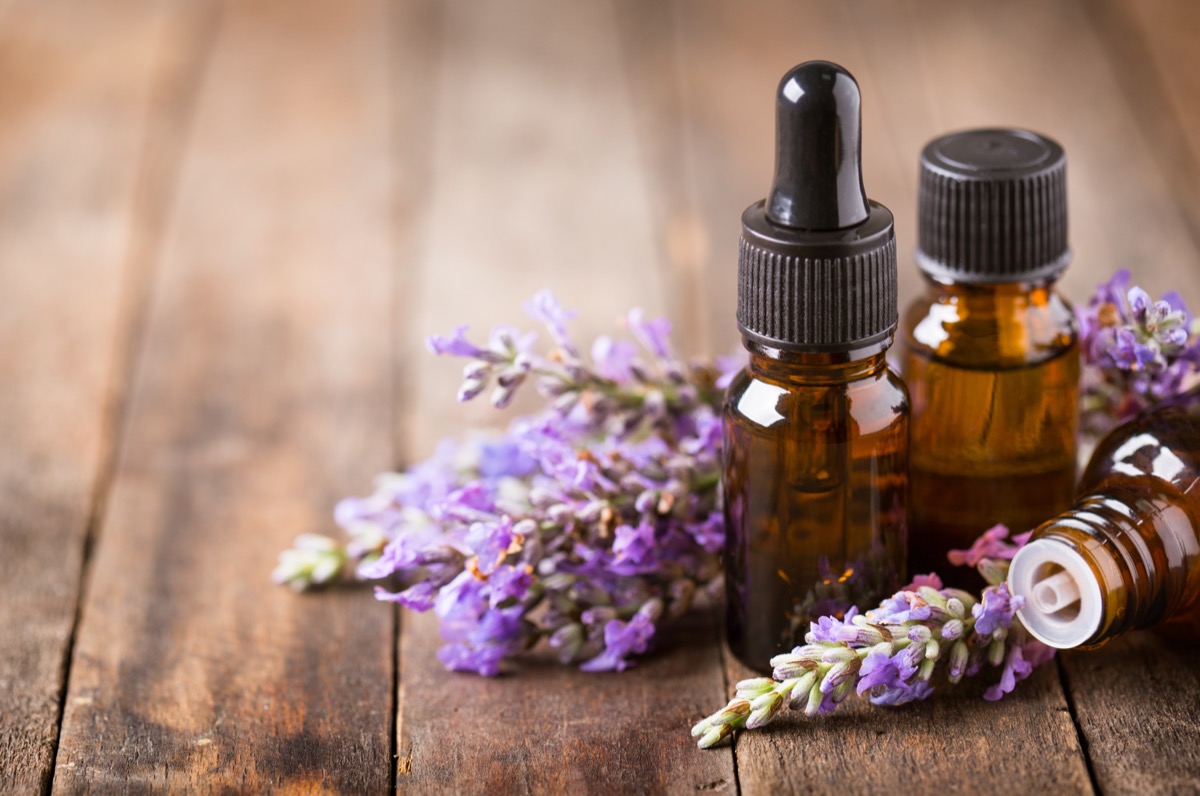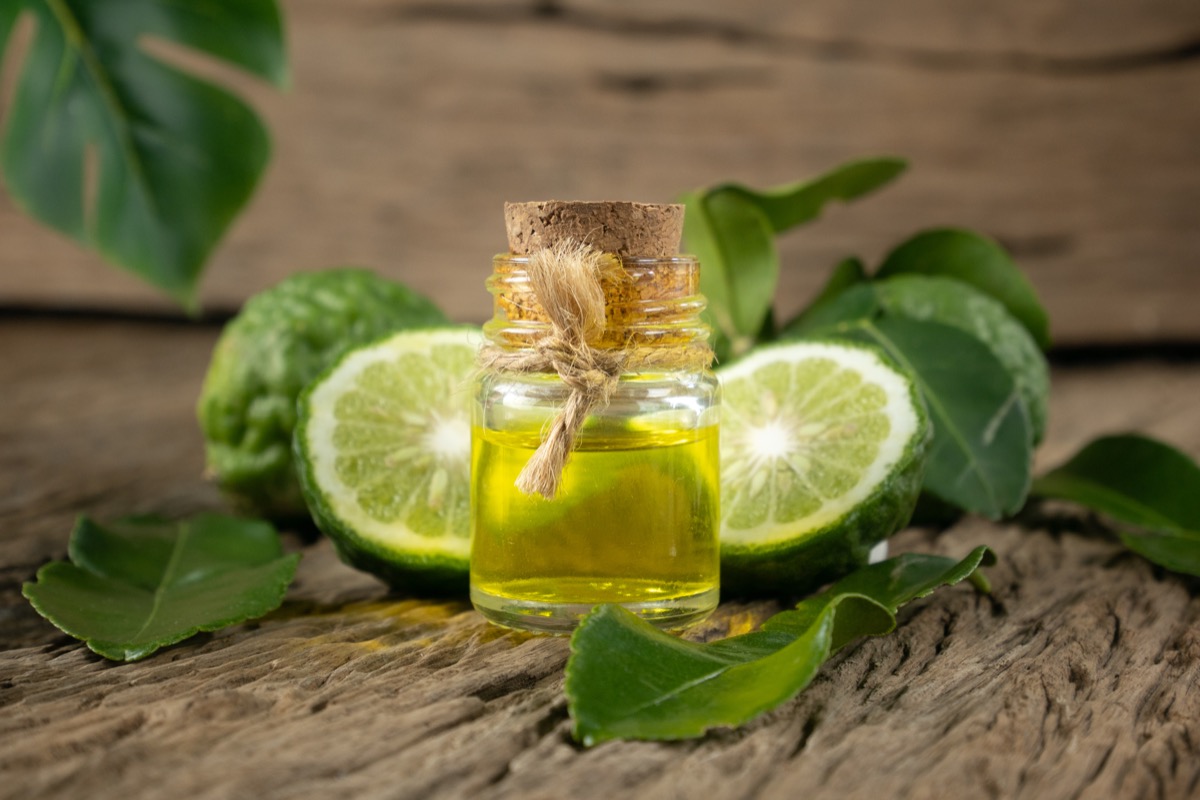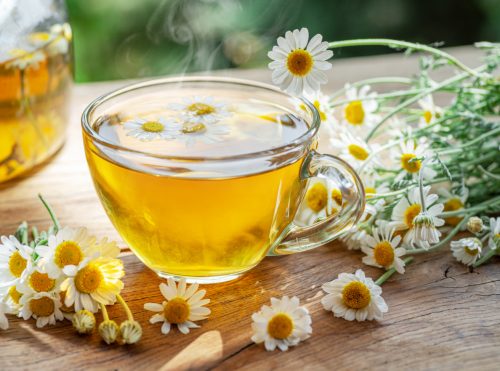4 Scents That Can Reduce Depression, New Research Shows

For centuries, people have used aromatherapy for its therapeutic benefits, including emotional regulation. Now, research is exploring how it could be used to combat specific mental health problems, such as depression and anxiety.
For instance, a 2022 study published in the medical journal Frontiers in Neuroscience looked at the relationship between one’s sense of smell and their likelihood of developing depressive traits. They note that people who lost their senses of smell were more likely than those who did not to develop clinical depression within five to 10 years, and that the severity of one’s sensory loss could actually predict the severity of their eventual depression.
Based on these findings, the team proposed that enhancing your sense of smell may help improve your symptoms of depression. Olfactory enrichment in the form of aromatherapy “modifies brain structures and improves cognitive and emotional status,” the researchers wrote.
If you’re looking to improve your own mental wellbeing with aromatherapy, these are the four specific scents that researchers recommend for reducing symptoms of depression.
RELATED: 8 Houseplants That Improve Your Mental Health, Science Says.
1
Familiar scents

New research published last month in JAMA Open Network suggests that familiar scents can improve symptoms in people with depressive disorders. That’s because individuals who suffer from depression are known to have more difficulty recalling specific autobiographical memories. However, smelling familiar scents helped the study subjects recall more memories.
Kymberly Young, an associate professor of psychiatry at the University of Pittsburgh and a co-author on the study, suggested while speaking to NBC News that with a little training, those with depression might be able to lessen their symptoms by using scents to conjure positive memories.
And, it seems any scent you have a personal memory of will do. The scents used in the study included orange, vanilla extract, cumin, whiskey, red wine, cough syrup, disinfectant, shoe polish, and more.
2
Lavender

Many of us associate lavender with calm, and in keeping with the findings of the last study, that association likely enhances its ability to improve depression and anxiety. However, studies show that there also appear to be other mechanisms behind lavender’s antidepressant and anxiolytic (anti-anxiety) effects.
“This plant exerts its healing effect on many diseases, such as anxiety and depression through an inhibitory effect on GABA,” says a 2023 study, referring to the primary inhibitory neurotransmitter in the brain. The researchers also note that lavender has an anti-inflammatory effect and can help regulate serotonin levels.
RELATED: Taking a “Smell Walk” Slashes Stress and Boosts Your Mood—Here’s How to Do It.
3
Bergamot orange

Bergamot orange is a citrus fruit that’s too bitter to eat on its own. However, Bergamot oil is commonly used in perfumes and aromatherapy—and touted for its mood-boosting benefits.
“Fifteen minutes of Bergamot essential oil exposure improved participants’ positive feelings compared with the control group (17 percent higher),” says a 2017 study published in the journal Phytotherapy Research. The study authors note that Bergamot is characterized by a high content of limonene, linalool, and linalyl acetate—three compounds associated with antidepressant and anxiolytic benefits.
Ultimately, they concluded, “that bergamot essential oil aromatherapy can be an effective adjunct treatment to improve individuals’ mental health and well‐being.”
4
Chamomile

A 2021 study published in the International Journal of Molecular Sciences found that chamomile was yet another scent that could improve mental well-being when used as aromatherapy. The study noted that inhaling chamomile oil helped to decrease levels of depression, anxiety, and stress in older adults.
“It was suggested that the anxiolytic and antidepressant effects could be associated with the suppression of the activity of the sympathetic nervous system,” the researchers note.
A 2022 study in the journal Explore found that inhaling chamomile or lavender can have antidepressant benefits that last long after exposure. Those researchers saw a “statistically significant improvement occurred in depression, anxiety, and stress levels immediately and one month after the intervention in lavender and chamomile groups compared to the control group,” the study says.
Best Life offers the most up-to-date information from top experts, new research, and health agencies, but our content is not meant to be a substitute for professional guidance. If you have health questions or concerns, always consult your healthcare provider directly.
- Source: Frontiers in Neuroscience: Olfactory loss is a predisposing factor for depression, while olfactory enrichment is an effective treatment for depression
- Source: JAMA Open Network: Recall of Autobiographical Memories Following Odor vs Verbal Cues Among Adults With Major Depressive Disorder
- Source: Heliyon: Aromatherapy for the brain: Lavender's healing effect on epilepsy, depression, anxiety, migraine, and Alzheimer's disease
- Source: Phytotherapy Research: Bergamot (Citrus bergamia) Essential Oil Inhalation Improves Positive Feelings in the Waiting Room of a Mental Health Treatment Center
- Source: International Journal of Molecular Sciences: Therapeutic Effect and Mechanisms of Essential Oils in Mood Disorders
- Source: Explore: The effects of Lavender and Chamomile essential oil inhalation aromatherapy on depression, anxiety and stress in older community-dwelling people